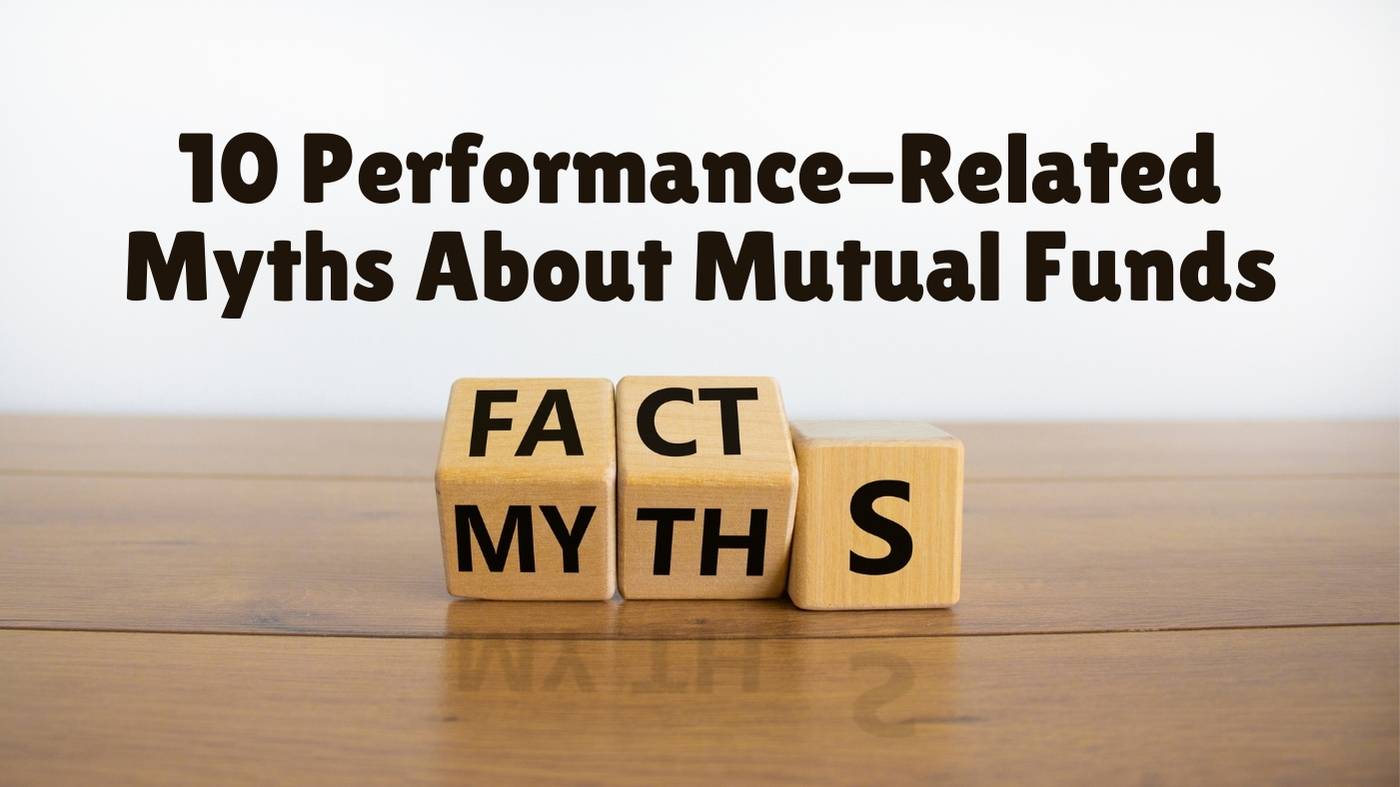Many investors base their mutual fund decisions on misconceptions about performance. Believing in these misconceptions can lead to unrealistic expectations and poor investment choices. This blog will debunk some of the most common performance-related myths about mutual funds.
10 Performance-Related Myths About Mutual Funds
Myth 1: Past Performance Guarantees Future Returns
Fact: A mutual fund’s past performance does not guarantee similar future returns. While historical data can provide insights, market conditions, economic factors, and fund management decisions impact future returns.
Example: Due to changing market dynamics, a fund delivering 20% annualised returns over the past five years may not sustain the same performance in the next five years.
Myth 2: Mutual Funds Always Beat Inflation
Fact: While many mutual funds aim to generate inflation-beating returns over the long term, not all succeed. Some debt or conservative funds may provide lower returns, especially during unfavourable economic conditions.
Example: If inflation is 6% and a liquid fund generates 5% returns, the investor’s actual returns are negative (-1%).
Myth 3: Higher NAV Means a Better Mutual Fund
Fact: The Net Asset Value (NAV) of a mutual fund represents the per-unit price of the fund and does not indicate the fund’s quality or potential returns. A higher NAV does not mean the fund will perform better than one with a lower NAV.
Example: A fund with an NAV of Rs. 200 and another with an NAV of Rs. 20 could generate the same percentage returns over time, as NAV is merely a pricing mechanism.
Myth 4: Lower NAV Mutual Funds Are Cheaper and Better to Invest In
Fact: A mutual fund’s NAV is not like a stock price. A lower NAV does not mean it is undervalued or has more growth potential. Fund performance depends on asset allocation, fund manager expertise, and market conditions.
Example: Two funds launched at different times may have different NAVs, but their future performance depends on investment strategy rather than NAV value.
Myth 5: Mutual Fund Rankings Do Not Change Over Time
Fact: Mutual fund rankings fluctuate due to changing market conditions, portfolio shifts, and fund manager decisions. A top-performing fund today may not maintain its position in the future.
Example: A fund ranked No. 1 in 2020 may drop in rankings by 2023 if its asset allocation strategy underperforms in new market conditions.
Myth 6: More Diversification Always Means Better Returns
Fact: While diversification helps manage risk, over-diversification can dilute returns. Investing in too many funds or holding excessive stocks within a fund can lead to average returns instead of optimised gains.
Example: Investing in 10 equity funds with overlapping stocks may not provide better returns than investing in 2 to 3 well-diversified funds.
Myth 7: Dividend Mutual Funds Are Better Than Growth Mutual Funds
Fact: Dividend mutual funds distribute earnings as payouts, while growth funds reinvest them for compounding. The right choice depends on an investor’s financial goals and tax implications.
Example: A growth mutual fund investor benefits from compounding over the long term, while a dividend fund investor receives periodic payouts but may miss out on long-term wealth accumulation.
Myth 8: Mutual Funds Never Experience Negative Returns
Fact: Mutual funds are market-linked and can experience positive and negative returns. Short-term fluctuations are common, and certain funds, especially equity funds, can go through downturns.
Example: An equity mutual fund investing in technology stocks may lose value if the tech sector experiences a downturn.
Myth 9: A Fund That Performs Well Today Will Always Perform Well
Fact: No mutual fund can guarantee consistent top performance. Market conditions, fund manager changes, and sectoral shifts influence returns, making past success no assurance of future performance.
Example: A mid-cap fund outperforming during a bull run may struggle during a market correction.
Myth 10: Switching Funds Frequently Improves Returns
Fact: Frequent switching between mutual funds can lead to higher costs, exit loads, and potential tax implications, which can eat into returns. A disciplined investment strategy is usually more beneficial than frequent portfolio churn.
Example: Selling a mutual fund within one year could attract short-term capital gains tax, reducing actual returns.
Invest Wisely with VSJ FinMart
Investing in mutual funds requires knowledge and a long-term perspective. If you seek expert guidance on choosing the right mutual funds, VSJ FinMart is here to help. We offer the expertise to help you develop a personalised investment portfolio to achieve your financial goals.
📩 Get in Touch with VSJ FinMart Today!
Start your journey towards wealth creation with confidence! 🚀
Final Thoughts
Many people believe myths about mutual fund performance, leading to bad investment decisions. Past returns, NAV, and fund rankings may give some idea of future success, but they don’t guarantee future success. The best way to invest is to stay patient, focus on your long-term goals, and avoid switching funds too often. Instead of following trends, choose funds wisely and give them time to grow. When in doubt, consult a financial professional for guidance.
Explore our blogs to gain deeper insights into mutual fund investing:
- 10 General Myths About Mutual Funds
- 10 SIP-Related Myths About Mutual Funds
- 10 Risk-Related Myths About Mutual Funds
- 10 Taxation-Related Myths About Mutual Funds
- 10 Investment Myths About Mutual Funds
- 10 Fund Management Myths About Mutual Funds
- 10 Redemption & Withdrawal Myths About Mutual Funds
Stay informed and invest wisely! 🚀
📢 Disclaimer
Mutual fund investments are subject to market risks, so read all scheme-related documents carefully before investing. Past performance is not indicative of future results. The information provided in this blog is for educational and informational purposes only and should not be considered investment advice. Investors should consult their financial advisors before making any investment decisions. VSJ FinMart is an AMFI-registered mutual fund distributor (MFD) that does not provide portfolio management or stock advisory services.

